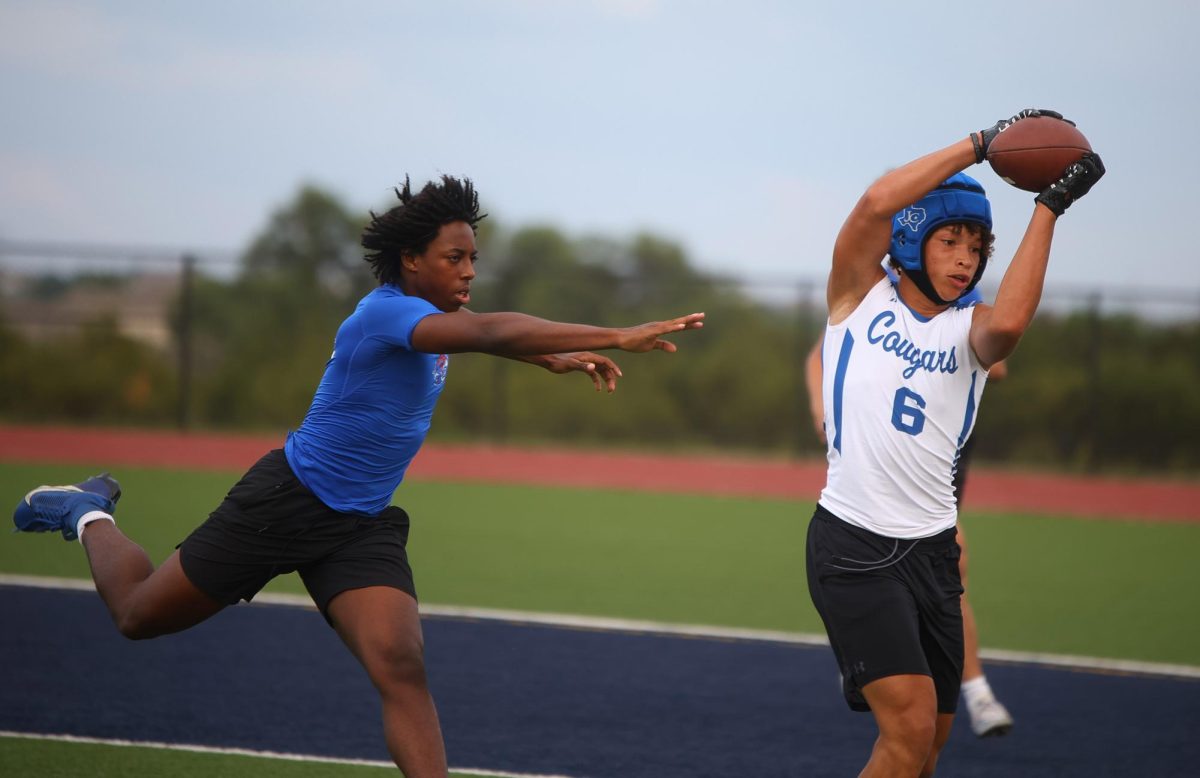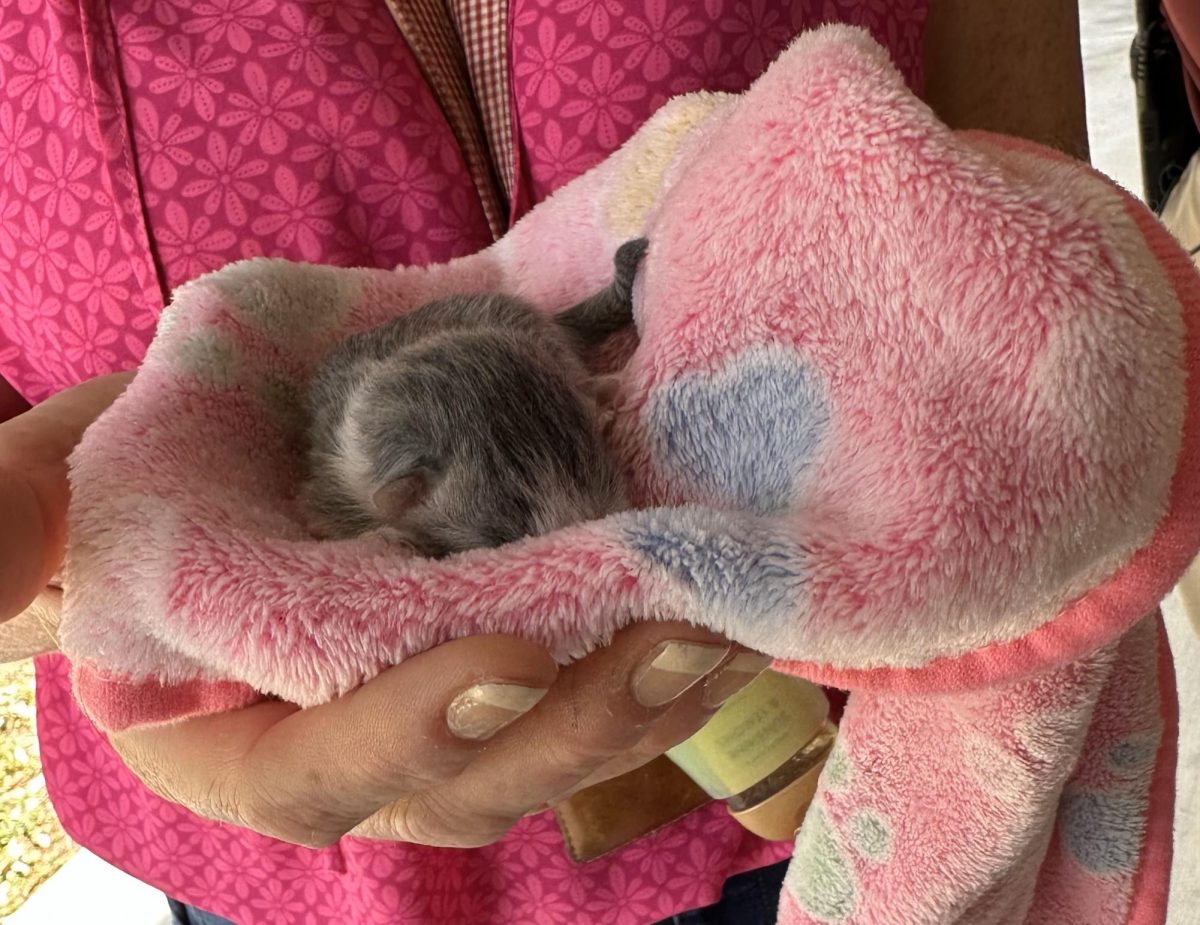
Fate has a sense of humor.
The girl from Buttercup Creek, from the cheer team, from the blue-checkered linoleum and elementary school playground heaves heavy stones into the world’s pond.
MJ Hegar graduated in 1994, with dreams of flying. Years of dedication as an Air Force major would result in a Purple Heart, the disbanding of a decades-old discriminatory policy, and a story of following her dreams. Leander High School, and later, the University of Texas, produced an empowering women, fed readily by a healthy dose of fantasy.
“I had a good time [in high school], I guess as much as you can in that stage of life,” Hegar confessed. “I was class president, a cheerleader, a mascot. When I left, I went to the University of Texas, where I joined ROTC, because I wanted to be a pilot. Actually, I wanted to be Han Solo from Star Wars – being a combat pilot was the closest I could get to that.”
During her third tour in Afghanistan, Hegar’s medevac mission came under fire by opposing forces. In this moment, she demonstrated her purple-beating heart, a characteristic unrelated to gender.
After college, Hegar went into the Air Force, where she was deployed to Japan as her first assignment. “[There,] I learned how the aircrafts work, which served me well as a pilot later,” Hegar said. “I [became a part] of the Air National Guard. I was shot down in Afghanistan… and had to help defend our perimeter against some 150 enemy troops. That gave me ground combat experience, which was unusual for a pilot, [and women at the time]. It put me in the forefront around the Ground Combat Exclusion Policy, which barred women from competing for jobs in the military. [This] resulted in a lot of women not being able to [climb] higher in the military hierarchy. So I took on that fight.”
The United States military held the Ground Combat Exclusion policy until January 2013 since its creation in 1948. Until April of 1993, the policy barred women from engaging in ground combat. Although Hegar’s work, along with several other female veterans, resulted in the policy’s abolition, women in the military continue to face challenges.
“What women were thought to be doing [in the military] and what they were actually doing were very far apart,” Hegar said. “We [knew] women who would park in a veteran’s parking spot and come back to a [note] on the car saying ‘this spot is reserved for our nation’s heroes, how dare you, we don’t care what your husband did.’ I’ve had cops pull me over and, after seeing my Purple Heart plates, thank my husband for his service [instead of me].”
Despite setbacks, since the repeal of the Ground Exclusion Policy, women in both the military and Junior Reserve Officers Training Corps programs have been given more opportunities to contribute to their passion.
“One woman I look up to is a previous graduate from our JROTC unit here at Leander,” junior Emma Vaughan, a JROTC cadet captain. “She graduated last year and was someone I really looked up to. She had a clear understanding of who she was and what she wanted to accomplish… Women, I think, have contributed [as] equally as men have in diverse roles throughout the years, most notably Lori Robbinson an Air Force general. In JROTC I have never felt as though I am not equally represented. Your success within the program is based upon your work effort, not based on your gender.”
Thanks to Hegar’s work against the policy, young women in her alma mater’s JROTC program have the opportunity to realize their dreams.
“ROTC was something I… wanted to do since I was about 11 years old,” junior Isabella Rodriguez Roman, a JROTC cadet sergeant said. “My dad was in the military… I wanted to follow [in] his footsteps… I will most definitely join the military, it’s always been my dream to. I don’t want my dreams to be just dreams, I want them to be my reality.”
After leaving the military, Hegar spent some time in healthcare and published her memoir, Shoot Like a Girl. In July of 2017, she ran for congress as a democratic candidate. Despite losing the position to John Carter by a 3% margin, Hegar’s campaign serves as a reminder of the power individuals hold over their representatives.
“[When] running good races and getting out there– it’s not a loss when you lose an election,” Hegar said. “There was still progress made, just not enough… There’s nothing quite as harmful to democracy as legislators thinking that they’re safe. So we actually hold a lot of power over our [opponents]. If I inspired young girls with the power I held, then I see a future young woman who could take that position of power [back]. If I inspired you to pull that person out of your chest and into the forefront of the limelight– that’s what I want to see. The ripples in the pond.”
Hegar hopes the ripples she made in her military and political career inspire others to make waves.
“How can I leave a better world for my boys?” Hegar said. “My boys are 7 and 10 now and I’m scared. I’m scared of the world we’re handing them, politically and geopolitically. I hope my legacy will be to inspire others to stand up for [themselves and their world]. Our civil liberties are not something that can ever be taken from us. [You win your civil liberties, but you can’t take your eye off the ball. There will always be someone waiting to take away your rights and power. [I want] people to see that and keep up the fight.”
Since her campaign, Hegar has worked as a defense consultant in Washington DC, and frequently advises high school students.
“When I mentor kids in high school I [tell them] ‘don’t think that you’re alone in these thoughts that you’re having,’” Hegar said. “Thoughts like: am I good enough, am I likable, am I popular. And it’s not really about popularity, it’s about survival instinct, to be welcomed into this society… We’re all sort of in our own heads… It can be tough to work through insecurity and work through awkwardness and realize that even though [other people] may look like they have it together, they may not in reality. It’s the hardest time in life and it will get better.”
Like Hegar, Leander High School’s JROTC instructors ceaselessly work to help their cadets gain confidence in their character.
“On active duty I had been a squadron commander and a ladder at intermediate levels before that,” Jeff Moffit, lieutenant colonel and instructor of the Air Force JROTC program said. “I had younger leaders who were learning how to lead and I enjoyed mentoring them. I would try to help them grow and accomplish their goals. It was a satisfying, fulfilling aspect of the job. [In the JROTC program], I like trying to help everybody get where they’re trying to go. Everyone is different and I try to give them what I can offer to help in their particular situation.Male or female, it doesn’t matter, I’m just here to help them.”
Hegar’s final advice to high school students? Don’t get a tattoo; don’t marry before 25 years old; don’t live by other people’s limits.
“[Never] let other people tell you what you can and can’t do,” Hegar advocated. “I had an advisor [withhold] a recommendation for an ROTC scholarship because he didn’t think women should be in the military. We can’t let people stop us because of their own preconceived ideas of what they think you can do. Whatever reason people come up with for judging [your ability]– don’t listen. Listen to people’s advice if you respect them, but don’t let that advice stop you from following your dream.”






